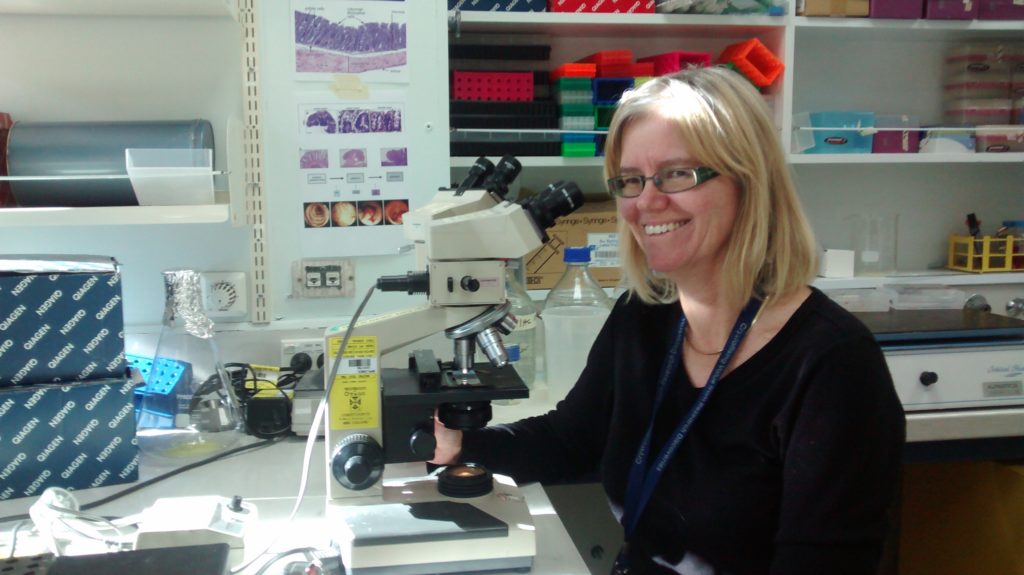“It’s hard to make a mouse fat,” says Associate Professor Gabi Dachs, a leading cancer researcher at the University of Otago in Christchurch. “But, we developed an obese mouse model to measure the effect of being overweight or obese on cancer tumours and chemotherapy outcomes.”

Obesity has been shown to be a major risk factor in the development of bowel cancer as well as oesophagus, pancreas, liver, uterus, breast and kidney cancers – and evidence also shows that obese cancer patients often have a poorer survival rate than normal-weight patients, and some do not respond as well to chemotherapy.
Cancer Research Week for 2018 has focused on the “big three” risk factors of obesity, alcohol, tobacco and sugar, and urging the Government to introduce policies which help to reduce the sale, supply and availability of fast foods, sugary drinks, alcohol and tobacco.
Gabi and her team started investigating the link between obesity and bowel cancer by feeding sugar and insulin to cancer cells growing in a dish to replicate elements you would find in the blood of obese people. The cells grew faster and showed a small change in their resistance to chemotherapy. That wasn’t conclusive.
The investigation needed to move to a living organism and Cancer Research Trust New Zealand stepped up with the funds to test the theory with the obese mouse model.
“This research has been important in increasing our understanding of whether obesity-related factors affect patient response to chemotherapy,” Gabi says. “Like most research, more and wider investigation is needed to learn more, but what we found was that the tumour we had placed on mice fed with a high fat, high sugar, Western diet and who became fat, grew faster than the tumour placed on the mice that stayed slim.”
She says the next step to investigate the correlation between obesity and cancer would be a major study with real bowel cancer patients that also considered all aspects of their lives from diet, age, gender, lifestyle and exercise.
“Without funding from the Cancer Research Trust, we could not have done the research into exploring the role of obesity and bowel cancer, and the impact on treatments, nor could a student complete their PhD to advance new science so vital to us all.”
“There are so many outstanding questions we need answers for, and we don’t know the outcomes of the science we are uncovering. The support of a cancer research charity like the Trust is vital to moving closer to helping patients with cancer.”
About the Cancer Research Trust New Zealand
Formerly known as the Genesis Oncology Trust, Cancer Research Trust New Zealand is the country’s second-biggest independent cancer research charity, funding over $15 million in research and professional development projects since 2002. The Trust provides grants to support New Zealand-based initiatives that will lead to improvements in the prevention, detection, diagnosis or treatment of all types of cancer, or improvements in palliative care. To learn more visit Cancer Research Trust NZ.








Join the Discussion
Type out your comment here:
You must be logged in to post a comment.